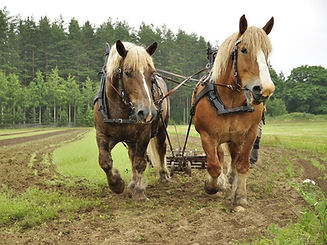
Why Physiotherapy?
Horses are naturally fine athletes, evolved for speed, endurance, manoeuvrability and courage.
Over centuries of service to humans and through highly selected breeding programmes in the last 200 years, the modern domesticated horse has emerged with trainability and a predisposition to form strong relationships with their handlers/riders.
Evolution has not, however equipped the horse to carry up to 20% of his weight in the form of a rider whilst performing movements such as jumping nor to pull heavy machinery without specific and lifelong intervention.
ALL ridden or driven horses are working athletes, even if the level and intensity of that work means that the human partner is not.
“Athletic performance at peak ability requires optimal musculoskeletal, cardiovascular and respiratory function, appropriate nutrition and correct psychological state”
Laura Jones, Sue Dyson, www.vettimes.co.uk, May 2016
Ideally all horses should see a physio as part of a team led by their veterinary surgeon and which also includes a qualified saddler and farrier. The following is a guide only, each horse is individually assessed:
-
Postpartum and foals: monthly for comfort handling and halter training, more frequently where there are limb deformities.
-
Initial training under saddle: every 4-8 weeks.
-
Maintenance of the healthy adult horse: 2-4 times a year for leisure horses, and every 4 weeks for competition horses.
-
At event pre and post competition support.
-
"Pamper" mini sessions for the leisure horse.
-
Box rest following surgery or injury: weekly for 1 month then as advised.
-
Injury rehabilitation: every 1-4 weeks for 12 weeks
-
Trauma treatment / rescue: weekly initially.
-
Retired horses or those with arthritis: monthly or more frequently as required.
-
Wounds / skin conditions: up to 3 times a week under the guidance of a veterinary surgeon.



For Sport
For Work
For Life
